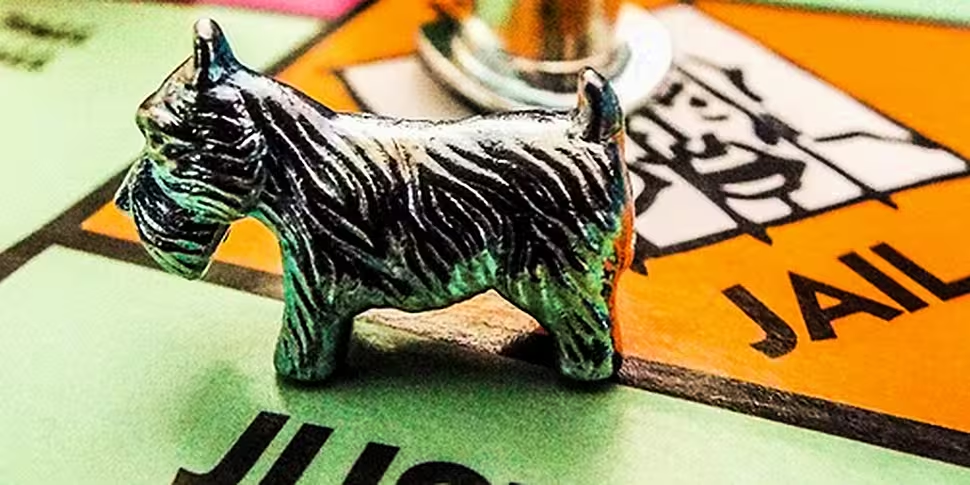Lizzie Magie was a bona fide spinster when she shuffled into the US Patent Office in March 1903. Well into her 30s she was seeking the official copyright to a board game she had designed in her off time as a court stenographer.
Spinster is, perhaps, an unfair title to thrust upon her, as Magie was an exceptional woman; she was happily single, bucking the trend of women of her age. It wasn’t the only way she embraced the counterculture – she was also a staunch advocate of the economic policies of Henry George, a tax reformer who wanted to completely change how wealth was distributed across America, keeping hard-earned wages in the hands of the working class.
The Landlord Game was what Magie had come to file a patent for, a cautionary boardgame that was “a practical demonstration of the present system of land-grabbing with all its usual outcomes and consequences.” That was how she’d described it in the 1902 edition of The Single Tax Review.
The Single Tax was a revolutionary idea proposed by Henry George, and as Mary Pilon, author of The Monopolists: Obsession, Fury, and the Scandal Behind the World’s Favorite Board Game, recently told Sean Moncrieff, the idea of using a toy to explain his economic theories to the masses was actually incredibly astute:Magie’s game came in two versions: in the first, players worked to acquire as much wealth and land as possible, crushing their opponents by amassing a vast and unassailable monopoly. In the other, wealth was created and distributed to all the players. It was a game, Lizzie Magie believed, that would make America and the world, a happier, fairer place to live.
In January, 1904, the patent for The Landlord Game was officially awarded, and within just a few short years, she’d already lost her monopoly on it.

Lizzie Magie's The Landlord Game [Wiki Commons]
If you were to sit down and look at the board and flick through the rules of Magie’s invention, aspects of it would seem instantly recognisable; you trade in money, acquiring the deeds of property, avoiding, as best you can, getting anywhere near the square telling you to ‘Go to Jail’. By fate’s design, a casual toss of the dice can see you making purchases, paying fees, or collecting cash, all in the hope that you can build a fortune eclipsing everyone else. You know it as Monopoly, where you ruthlessly aspire to build countless hotels on Shrewsbury or Ailesbury Roads, and where Shannon Airport is inexplicably part of the Dublin hinterland.
And bizarre though it may seem, while we owe the game and all its capitalistic clamouring to a woman who wanted to help the poor, we owe a localised Irish version to a bunch of Quakers in Atlantic City, New Jersey.It’s a man who usually gets the credit for creating the game as know it today, a chancer by the name of Charles Darrow, looking for a way to keep his family afloat in the grips of the Great Depression. Shown a version of The Landlord Game by a friend, Darrow concocted his own one, selling the reinvented product to a then floundering Parker Brothers for the princely sum of $7,000 – a tidy fortune at the time.

Charles Darrow in a marketing still for Monopoly [Wiki Commons]
Some good marketing turned Monopoly into a surprise hit. Parker Brothers sold almost 300,000 copies in the first year, and almost 2m more the year after. Eventually Monopoly would go global, becoming the quintessential boarding game for familes to feud over,earning Darrow a fortune, and saving the board game company from ruin.
As for Magie, well she was not quite forgotten. Parker Brothers reissued The Landlord Game in 1939, hoping to calm her growing fury, stamping her image on the box. But they never really made an effort to market it.
Magie fell out of the public’s consciousness, without even the second-prize winnings in a beauty contest to tide her over. The 1940 US census lists her occupation as ‘Maker of Games’ – and her income as $0.00. Eight years later, she passed away.
Darrow’s rags-to-riches story spread across the world, and might not have been uncovered were it not for an economist at San Francisco State University by the name of Ralph Anspach. Increasingly despondent with the 1973 Oil Crisis, Anspach developed his own version of the game, naming it Anti-Monopoly.
Players acted as ‘trustbusters’, trying to break up any one person’s hold over all the wealth, as well as other acts designed to improve the world.

Anspach's Anti-Monopoly board in 1973 [Pixabay]
Parker Brothers sued, with the case rolling on for almost a decade, before finally going before the assembled judges of the Supreme Court. Anspach scouring the country to find players who remembered playing The Landlord Game long before Monopoly usurped it, with the court ruling it existed in the public domain.
As Mary Pilon explained, that didn’t mean that Parker Brothers lost the rights to Monopoly:These days, countless versions of Monopoly exist, with film and TV tie-ins, electronic and digital versions. It’s rare now that a family sits down to play it, though when each member gathers around the board and divvies up the boot and top hat, chances are the players still don’t read the rules properly.
It is a great and lasting irony that a game which was supposed to lead the charge for the redistribution of wealth became the exact opposite, with lies and yarns spun, not to mention legal battles, to help keep a monopolistic hold on it.
Either way, it pays to hold onto those ‘Get Out of Jail Free’ cards, and look the other way.









